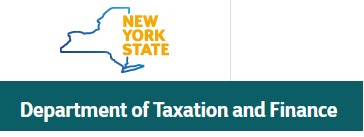Veterans Property Tax Exemptions Application New York
Organisation : Department of Taxation and Finance
Facility Name : Veterans Property Tax Exemptions Application
State : New York
Country : USA
Website : https://www.tax.ny.gov/pit/property/exemption/index.htm
What is Veterans Property Tax Exemptions?
Though all property is assessed, not all of it is taxable. Some properties, such as those owned by religious organizations or governments are completely exempt from paying property taxes. Others are partially exempt, such as veterans who qualify for an exemption on part of their homes, and homeowners who are eligible for the School Tax Relief (STAR) program. Most exemptions are offered by local option of the taxing jurisdiction (municipality, county or school district). Check with your assessor to determine what exemptions are available in your community.

How To Apply Veterans Property Tax Exemptions?
To Apply Veterans Property Tax Exemptions, Follow the steps given below
Application Form : https://www.tax.ny.gov/forms/orpts_cur_forms.htm
Types of Veterans Property Tax Exemptions
There are three different property tax exemptions available to Veterans who have served in the United States Armed Forces. The exemption applies to county, city, town, and village taxes. Exemptions may apply to school district taxes.
Veterans can receive one of the three following exemptions:
1. Alternative Veterans’ Exemption
** Available only on residential property of a Veteran who has served during a designated time of war or received an expeditionary medal
** Currently available in over 95 percent of the county, city, town, and village taxing jurisdictions across the state. The remainder of these jurisdictions may choose to offer this exemption in the future
** Veteran applicants should check with the assessor or clerk in the municipalities in which they reside to see whether the Alternative Veterans’ Exemption is offered
** Extra tax reductions available for combat and United States Department of Veterans Affairs service-connected disabilities
** May be available for school district taxes. School districts must elect to offer the exemption
2. Cold War Veterans’ Exemption
** Available only on residential property of a Veteran who served during the Cold War period
** Counties, cities, towns, and villages have the option to offer this exemption to qualified Veterans
** Extra tax reductions available for United States Department of Veterans Affairs service-connected disabilities
** Check with your assessor or clerk to see whether the Cold war Veterans’ exemption is offered
3. Eligible Funds Exemption
** Provides a partial exemption
** Applies to property that a Veteran or certain other designated person purchases. Such owners must purchase the property with pension, bonus, or insurance monies
** May be available for school district and other taxes
Exemption For Persons With Disabilities
** Local governments and school districts in New York State can opt to grant a reduction on the amount of property taxes paid by qualifying persons with disabilities.
** To qualify, persons with disabilities generally must have certain documented evidence of their disability and meet certain income limitations and other requirements.
** The basic exemption is a 50% reduction in the assessed value of the legal residence of the qualifying disabled person.
** For the basic exemption, the law allows each county, city, town, village, or school district to set the maximum income limit at any figure between $3,000 and $29,000.
** Localities have the further option of giving exemptions of less than 50% to persons with qualifying disabilities whose incomes are more than $29,000.
** Under this option, called the “sliding-scale” option, a qualifying owner can have a yearly income as high as $37,399.99 and get a 5% exemption in places that are using the maximum limit.
Check Your Assessment
** Assessment rolls list information for every property within a municipality.
** Most towns and cities publish a tentative assessment roll on May 1. We encourage you to review your assessment by mid-May.
This is your opportunity to:
** ensure that your assessment is fair,
** make sure that you’ll receive the exemptions you believe you’re entitled to, and
** discuss the matter with your assessor if you disagree with what you find.
** To learn how to read an assessment roll, see Overview of the assessment roll.
** For more information, watch Is your assessment fair?
** If you and your assessor are unable to agree on your assessment or exemptions, you may wish to consider contesting your assessment. However, you should be aware that you may only do so until Grievance Day which is the fourth Tuesday in May in most jurisdictions. (We suggest asking your assessor whether that date applies to your jurisdiction.)
